IEEE ICDH 2021 Organizing Committee
SERVICES Congress General Chairs
Rong Chang, IBM Research, TJ Watson Research Center
Ian Foster, University of Chicago/Argonne National Lab
SERVICES Congress Program Chairs in Chief
Ernesto Damiani, University of Milan
Jia Zhang, Southern Methodist University
ICDH Conference General Chairs
 Jaques Demongeot received his Ph.D. in Mathematics from the University Joseph Fourier (UJF) of Grenoble in 1976 and M.D. from UJF in 1978. He was appointed as Professor in UJF (Faculty of Medicine) in 1984 (Emeritus since 2015) and as Senior Member of the Institut Universitaire de France in 1994 (Honorary since 2005). He did a post-doc at the Mathematical Biology Laboratory of Oxford (J.D. Murray) and at IHES (R. Thom) in 1983-1984. He created the laboratory CNRS TIMC-IMAG in 1987 and was its director until 2011. He founded the Medical Informatics Service and Public Health Pole at University Hospital of Grenoble in 1985 and directed it until 2012. He has published over 300 scientific papers in medical informatics, biostatistics, bioinformatics and theoretical biology.
Jaques Demongeot received his Ph.D. in Mathematics from the University Joseph Fourier (UJF) of Grenoble in 1976 and M.D. from UJF in 1978. He was appointed as Professor in UJF (Faculty of Medicine) in 1984 (Emeritus since 2015) and as Senior Member of the Institut Universitaire de France in 1994 (Honorary since 2005). He did a post-doc at the Mathematical Biology Laboratory of Oxford (J.D. Murray) and at IHES (R. Thom) in 1983-1984. He created the laboratory CNRS TIMC-IMAG in 1987 and was its director until 2011. He founded the Medical Informatics Service and Public Health Pole at University Hospital of Grenoble in 1985 and directed it until 2012. He has published over 300 scientific papers in medical informatics, biostatistics, bioinformatics and theoretical biology.
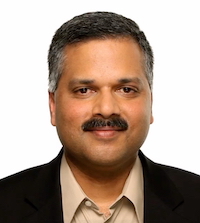 Ajay Royyuru leads Healthcare & Life Sciences research at IBM. His team pursues research in disciplines of computational biology, computational health, and digital health. Developing novel technologies and achieving translational insights, they address areas of cancer, cardiovascular and metabolic, neurological and mental health, immune system, and infectious diseases. Their work has featured in The New York Times, The Washington Post, BBC, Forbes, Scientific American, Nature Medicine, and Nature news articles.
Ajay Royyuru leads Healthcare & Life Sciences research at IBM. His team pursues research in disciplines of computational biology, computational health, and digital health. Developing novel technologies and achieving translational insights, they address areas of cancer, cardiovascular and metabolic, neurological and mental health, immune system, and infectious diseases. Their work has featured in The New York Times, The Washington Post, BBC, Forbes, Scientific American, Nature Medicine, and Nature news articles.
After his undergraduate and masters education in human biology and biophysics from All India Institute of Medical Sciences, New Delhi, Ajay obtained his Ph. D. in molecular biology from Tata Institute of Fundamental Research, Mumbai. He had postdoctoral training at Memorial Sloan-Kettering Cancer Center, New York and a brief stint at scientific software development before joining IBM Research.
In 2016 Ajay was named an IBM Fellow, the company's pre-eminent technical distinction. Ajay is a member of International Society for Computational Biology, IBM Academy of Technology and IBM Industry Academy.
 Daqing Zhang obtained his Ph.D. from University of Rome "La Sapienza", Italy and has been a Professor at Telecom SudParis, France and Peking University, China. His research interests include Ubiquitous Computing, context-aware computing, big data analytics and Intelligent IoT. He is the winner of the Ten Years CoMoRea Impact Paper Award at IEEE PerCom 2013 and Ten Years Most Influential Paper Award at IEEE UIC 2019, the Honorable Mention Award at ACM UbiComp 2015 and 2016, etc.. He served as the general or program chair for more than a dozen of international conferences, and in the editorial board of IEEE Pervasive Computing, ACM TIST and ACM IMWUT. He is a Member of Academia Europaea and a Fellow of IEEE.
Daqing Zhang obtained his Ph.D. from University of Rome "La Sapienza", Italy and has been a Professor at Telecom SudParis, France and Peking University, China. His research interests include Ubiquitous Computing, context-aware computing, big data analytics and Intelligent IoT. He is the winner of the Ten Years CoMoRea Impact Paper Award at IEEE PerCom 2013 and Ten Years Most Influential Paper Award at IEEE UIC 2019, the Honorable Mention Award at ACM UbiComp 2015 and 2016, etc.. He served as the general or program chair for more than a dozen of international conferences, and in the editorial board of IEEE Pervasive Computing, ACM TIST and ACM IMWUT. He is a Member of Academia Europaea and a Fellow of IEEE.
ICDH Conference Executive Program Chair
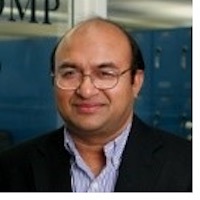 Sheikh Iqbal Ahamed is a professor and Chair of Computer Science and director of Ubicomp lab at Marquette University, USA. He is a senior member of the IEEE, ACM, and the IEEE Computer Society. He completed his Ph.D. in Computer Science from Arizona State University, USA in 2003. His research interests include mHealth, affective computing, non-intrusive technologies. He is active in system and application development of mHealth projects for Native American, Hispanic community and other underserved populations like Nepal, Bangladesh. Most of his mHealth projects are supported by NIH, Industry and Philanthropic organizations. He has published 200+ peer reviewed journal, conference and workshop papers. He has received twelve best paper/posters awards in last five years. Dr. Ahamed serves regularly on international conference program committees in software engineering and pervasive computing such as COMPSAC, PERCOM and SAC . He has been serving as the Standing Committee Vice Chair of IEEE COMPSAC(compsac.org), which is a signature conference of IEEE since 2015. He is the Guest Editor of Computer Communications Journal, Elsevier.
Sheikh Iqbal Ahamed is a professor and Chair of Computer Science and director of Ubicomp lab at Marquette University, USA. He is a senior member of the IEEE, ACM, and the IEEE Computer Society. He completed his Ph.D. in Computer Science from Arizona State University, USA in 2003. His research interests include mHealth, affective computing, non-intrusive technologies. He is active in system and application development of mHealth projects for Native American, Hispanic community and other underserved populations like Nepal, Bangladesh. Most of his mHealth projects are supported by NIH, Industry and Philanthropic organizations. He has published 200+ peer reviewed journal, conference and workshop papers. He has received twelve best paper/posters awards in last five years. Dr. Ahamed serves regularly on international conference program committees in software engineering and pervasive computing such as COMPSAC, PERCOM and SAC . He has been serving as the Standing Committee Vice Chair of IEEE COMPSAC(compsac.org), which is a signature conference of IEEE since 2015. He is the Guest Editor of Computer Communications Journal, Elsevier.
ICDH Conference Program Chairs
 Giuseppe De Pietro is Director of the Institute for High-Performance Computing and Networking - CNR, and Adjunct Professor at the College of Science and Technology of Temple University - Philadelphia. His current research interests focus on artificial intelligence, clinical decision support systems, software architectures for e-health. He has been actively involved in many European and national projects, even with industrial collaborations. He is currently the coordinator of the European SMART BEAR and AI4HEALTHSEC H2020 project. He is the author of over 200 scientific articles published in international journals and conferences and is involved in many program committees and journal editorial boards. He is a member of IEEE and KES International.
Giuseppe De Pietro is Director of the Institute for High-Performance Computing and Networking - CNR, and Adjunct Professor at the College of Science and Technology of Temple University - Philadelphia. His current research interests focus on artificial intelligence, clinical decision support systems, software architectures for e-health. He has been actively involved in many European and national projects, even with industrial collaborations. He is currently the coordinator of the European SMART BEAR and AI4HEALTHSEC H2020 project. He is the author of over 200 scientific articles published in international journals and conferences and is involved in many program committees and journal editorial boards. He is a member of IEEE and KES International.
 Lin Liu is an Associate Professor of School of Software at Tsinghua University. Her research interests include requirements engineering, knowledge management, software engineering methodologies for emerging applications in big data and intelligence systems, and analysis techniques for system security, privacy and trust, health data analytics. She has authored or co-authored more than 100 articles in journals, and conference and workshop proceedings. She is a Principal Investigator in research projects on software requirements engineering, clinical decision support systems and medical big data platforms. Currently, she is serving as the Associate Editor of International Journal of Information System Modelling and Design, Editorial Board Member of the Requirements Engineering Journal of Springer, and Journal of Software in Chinese. She is also the on the program committee of Conferences and Workshops on Requirements Engineering and Information Systems Engineering and health data analytics.
Lin Liu is an Associate Professor of School of Software at Tsinghua University. Her research interests include requirements engineering, knowledge management, software engineering methodologies for emerging applications in big data and intelligence systems, and analysis techniques for system security, privacy and trust, health data analytics. She has authored or co-authored more than 100 articles in journals, and conference and workshop proceedings. She is a Principal Investigator in research projects on software requirements engineering, clinical decision support systems and medical big data platforms. Currently, she is serving as the Associate Editor of International Journal of Information System Modelling and Design, Editorial Board Member of the Requirements Engineering Journal of Springer, and Journal of Software in Chinese. She is also the on the program committee of Conferences and Workshops on Requirements Engineering and Information Systems Engineering and health data analytics.
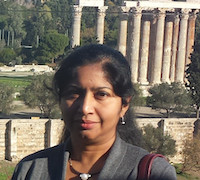 Farhana Zulkernine is an Associate Professor, the Coordinator of the Cognitive Science program, and the Director of the BAM Lab (Big Data Analytics and Management) at the School of Computing Queen’s University. She completed her Ph.D. degree from Queen's University. Her research focuses on developing artificial intelligence (AI) and cognitive computing models and integrating the same in big data analytics and management frameworks to address real life problems in medical, law, science and social data domains. She is a certified professional engineer and has worked in three continents in software research and development with industry partners such as Pfizer, IBM Canada, CA Technologies, Calian and Markitech. She collaborated with Public Health Canada, Canadian Primary Care Sentinel Services Network (CPCSSN), and academic partners in Canada and abroad. She serves on multiple funding and conference committees and has published over than a 100 research articles in reputed journals, conferences and workshops.
Farhana Zulkernine is an Associate Professor, the Coordinator of the Cognitive Science program, and the Director of the BAM Lab (Big Data Analytics and Management) at the School of Computing Queen’s University. She completed her Ph.D. degree from Queen's University. Her research focuses on developing artificial intelligence (AI) and cognitive computing models and integrating the same in big data analytics and management frameworks to address real life problems in medical, law, science and social data domains. She is a certified professional engineer and has worked in three continents in software research and development with industry partners such as Pfizer, IBM Canada, CA Technologies, Calian and Markitech. She collaborated with Public Health Canada, Canadian Primary Care Sentinel Services Network (CPCSSN), and academic partners in Canada and abroad. She serves on multiple funding and conference committees and has published over than a 100 research articles in reputed journals, conferences and workshops.
Advisory Board for Biomedical Sciences & Engineering
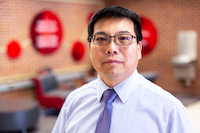 Li-Shan Chou is currently the Chair and Professor in Department of Kinesiology at the Iowa State University (ISU). He received his BS degree in Mechanical Engineering from Tatung Institute of Technology in Taiwan, and subsequently earned his MS and Ph.D. degrees, both in Mechanical Engineering, from University of Illinois at Chicago, as well as completed his postdoctoral training at University of Chicago and Mayo Clinic. He has served on the faculty of University of Oregon for 19 years (4 years as the Department Head of Human Physiology) before joining ISU in 2019. His interdisciplinary research investigates biomechanical markers that lead to sensitive detection and understanding of underlying mechanisms related to mobility/balance impairments associated with ageing, musculoskeletal diseases or injuries, and traumatic brain injury. Up to date, he has mentored 17 PhDs and many maters and undergraduate students, and his team published more than 110 peer-reviewed papers. His teaching is in the areas of biomechanical analysis of human movement, orthopedic biomechanics, and rehabilitation engineering. He is a Fellow of American Society of Biomechanics and serves as the Associate Editor and Section Editor to Gait and Posture and Archives of Physical Medicine and Rehabilitation, respectively. He is also the past-president of the International Society of Biomechanics 3D Analysis of Human Movement Technical Group.
Li-Shan Chou is currently the Chair and Professor in Department of Kinesiology at the Iowa State University (ISU). He received his BS degree in Mechanical Engineering from Tatung Institute of Technology in Taiwan, and subsequently earned his MS and Ph.D. degrees, both in Mechanical Engineering, from University of Illinois at Chicago, as well as completed his postdoctoral training at University of Chicago and Mayo Clinic. He has served on the faculty of University of Oregon for 19 years (4 years as the Department Head of Human Physiology) before joining ISU in 2019. His interdisciplinary research investigates biomechanical markers that lead to sensitive detection and understanding of underlying mechanisms related to mobility/balance impairments associated with ageing, musculoskeletal diseases or injuries, and traumatic brain injury. Up to date, he has mentored 17 PhDs and many maters and undergraduate students, and his team published more than 110 peer-reviewed papers. His teaching is in the areas of biomechanical analysis of human movement, orthopedic biomechanics, and rehabilitation engineering. He is a Fellow of American Society of Biomechanics and serves as the Associate Editor and Section Editor to Gait and Posture and Archives of Physical Medicine and Rehabilitation, respectively. He is also the past-president of the International Society of Biomechanics 3D Analysis of Human Movement Technical Group.
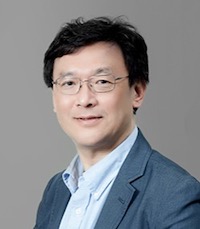
Tien Hsu is a cancer biologist, specializing in cancer immunity and prevention. He was a graduate of Medical University of South Carolina with a PhD in Molecular and Cell Biology, and was trained as a postdoctoral fellow at Harvard University. He worked as Assistant Professor to Professor at the Hollings Cancer Center, Charleston, South Carolina, and Professor of Medicine at Boston University School of Medicine, before he joint the faculty of National Central University (NCU), Taiwan, where he founded and served as the first Dean of College of Health Sciences and Technology. In that capacity, he was involved in establishing a cloud-based community eHealth network in Taiwan. He is now the Chair Professor of Biomedicine at NCU, and Chair Professor of Biotechnology of the Taiwan Bio-Development Foundation.
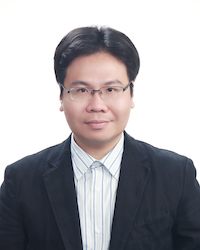
Men-Tzung Lo Ph.D., is Distinguished Professor of Department of Biomedical Sciences and Engineering and Institute of Translational and Interdisciplinary Medicine, National Central University. Dr. Lo obtained his Ph.D. in Communication Engineering from National Taiwan University for his works on biomedical signal and image processing as well as biomedical imaging and drug delivery system. He acquired his post-doctoral training in Beth Israel Deaconess Medical Center, Harvard medical school for applying novel nonlinear signal analysis to multiple biomedical signals from different disease groups to explore their underlying properties and quantifying the properties altered from normal as parameters for severity or prognosis of diseases. His two main research interests are time varying interactions between multiple biological signals of human subjects and the changes of nonlinear properties in different physiological and pathological statuses. Dr. Lo has been developing time saving nonlinear dynamic methods and revealing basic physiological principles and applying them to medicine for over 10 years. Dr. Lo has published over 100 original peer-reviewed articles and has been invited to present his research at many international conferences. In addition, he holds 12 US patents demonstrating the innovative nature of his work. Dr. Lo has received many awards and honors for various accomplishments including Outstanding Research Award of National Central University 2012, 2014 and Award for Excellent Contributions in Technology Transfer of National Central University 2014, 2015 2016. One of his prowess accomplishments was his development on the methodology of cardiac fibrillation and catheter ablation, his works has been published on several target journals. Dr. Lo is known for the live demo of mapping system for real time identification of the source of atrial fibrillation maintenance on the Asia Pacific Heart Rhythm Society 2013 at Hong Kong, this work has been recognized at 11th National Innovational Award, Taiwan. He was the member of Evaluation Committee, Ministry of Science and Technolodgy and Ministry of Economic Affairs, Taiwan.
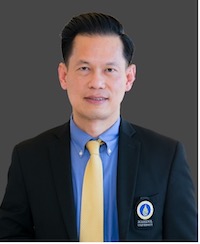
Pattanasak Mongkolwat is the dean of the Faculty of ICT, Mahidol University. He joined the faculty on November 2015. Previously, he worked at Northwestern University, Feinberg School of Medicine as a Research Professor of Radiology. He currently serves as a scientific reviewer for RSNA Radiographics and Artificial Intelligent, and SIIM Journal of Digital Imaging. He is a board certified by the American Board of Imaging Informatics since 2013. He was a funded subject matter expert for the U.S. NIH NCI’s Biomedical Informatics Grid (caBIG®) In Vivo Imaging Workspace and received NCI’s caBIG® Outstanding Achievement Award. Dr. Mongkolwat’s current research focuses on medical informatics and imaging; machine and deep learning for medical images; a robot and IoT for senior healthy living; applying simulation and gaming technology in healthcare; health data collection for big data; mapping NCI’s AIM to DICOM SR; and assistive technology for disabled persons.
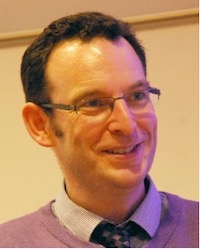
Christopher Nugent is currently the Head of the School of Computing at Ulster University and leads the Pervasive Computing Research Centre. His research addresses the themes of the development and evaluation of technologies to support pervasive healthcare within smart environments. Specifically, this has involved research in the topics of mobile based reminding solutions, activity recognition and behaviour modelling and more recently technology adoption modelling. He currently serves as the Program Chair for the Technology Professional Interest Area of the Alzheimer’s Association and is one of the Associate Editors for the Editorial Board of the IEEE Engineering Medicine and Biology Conference, Healthcare Information Systems Theme.
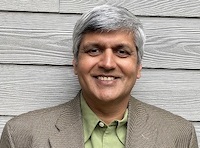
Rajesh Subramanyan is a senior head at Amazon Web Services, High Performance Computing since 2021. He was with Siemens for 15 years, including as a R&D Director at Siemens Healthineers Ultrasound and Diagnostics from 2010, and Siemens Corporate Research between 2005-10 as a Software Engineering and Test expert. He was a Visiting Assistant Professor at Computer Science Purdue between 2003-5 and earned his PhD in ECE from Purdue University and MSEE from the University of Houston. Rajesh has over 20 years of operational and organizational experience across the industry, academia and federal programs. He managed most functions between marketing and manufacturing for Health, led numerous product development from cradle to grave, worked on projects with Siemens Industry, Health and Energy verticals, and pioneered digital platforms on federal funding in the early years. He worked, published, and filed disclosures on AI/ML in medical imaging, and clinical workflows since 2008 for Siemens. His interests include digital health, AI / ML, Software, Systems, Automation and research interests include HPC, performance engineering, and internetworking. He has been active in organizing international IEEE conferences, served as a Program Chair for SSIRI 2009, and COMPSAC 2010, co-founded COMPSAC STA workshop in 2009, and led numerous expert panel discussions.
Advisory Board for Medical Science & Public Health
Syed M. Ahmed, Medical College of Wisconsin
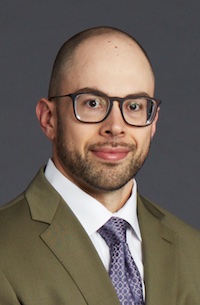
John-Ross (JR) Rizzo, M.D., M.S.C.I., is a physician-scientist at NYU Grossman School of Medicine. He is the Director of Innovation and Technology for Physical Medicine and Rehabilitation with cross-appointments in the Department of Neurology and the Departments of Biomedical & Mechanical and Aerospace Engineering at NYU-Tandon. He is also the Associate Director of Healthcare for the renowned NYU Wireless Laboratory in the Department of Electrical and Computer Engineering at NYU-Tandon. He leads the Visuomotor Integration Laboratory (VMIL), where his team focuses on eye-hand coordination, as it relates to acquired brain injury, and the REACTIV Laboratory (Rehabilitation Engineering Alliance and Center Transforming Low Vision), where his team focuses on advanced wearables for the sensory deprived and benefits from his own personal experiences with vision loss. He is also the Founder and Chief Medical Advisor of Tactile Navigation Tools, LLC, where he and his team work incessantly to disrupt the assistive technology space for those with visual impairments of all kinds, enhancing human capabilities. Dr. Rizzo has won numerous awards for his work in disability research, particularly focused on the intersection of ocular motor and manual motor control and on assistive technology. He was awarded the prestigious Crain’s 40 under 40 award in New York Business for his medical devices, including his wearable technology. Dr. Rizzo has also been featured in a number of lay articles and also featured in videos and press releases. In 2018, he was a highlighted speaker in NYU’s TEDx “Re-Vision” Series.
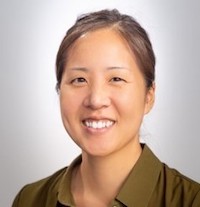
Kathy Chang is an Associate Residency Program Director and Assistant Clinical Professor in the Department of Family and Community Medicine at the University of New Mexico, USA. She is the current President of the Board of Directors for Engeye, Inc., a 501(c)3 non-profit organization supporting Engeye Health Clinic and the Engeye Scholars program in rural Uganda. She is a member of the Society of Teachers of Family Medicine and the current Communications Chair for the Global Health Educators Collaborative. She completed her M.D. and residency in Family Medicine at the University of Illinois College of Medicine in Peoria, IL, her M.P.H. in population and community health through the University of Illinois at Chicago School of Public Health, and is a Fellow of the American Academy of Family Physicians. Her current clinical practice includes outpatient primary care and inpatient hospital coverage on the family medicine teaching service, including precepting residents and medical students. Her interests include global health equity, practice management, electronic medical record optimization, and she serves as the Clinical Documentation Improvement (CDI) department champion. Her work with Engeye includes development and ongoing maintenance of the open source electronic medical record system (OCEMR) used on site since 2011, serving on-site as the Director of Clinical Services from 2011-2013, and implementation of ongoing clinical education via messaging apps and now teleconferencing platforms.
Rumi Khan, University of Central Florida
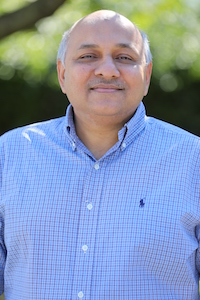 Faruque Parvez is an international public health researcher with over two decades of experience in research and health service delivery in the private sector and in academia. He has been actively engaged in health care research, training and establishing surveillance systems as well as health care programs in resource poor settings. Dr. Parvez has also been involved in respiratory infection surveillance in the Eastern Mediterranean Region and is conducting an investigation to examine a role of different pathogens on the etiology as well as the severity of respiratory infections among hospitalized patients in Jordan. In 2000, Dr. Parvez and his colleagues at Columbia University established the Health Effects of Arsenic Longitudinal Study (HEALS), a cohort of over 35,000 adults and their children in Bangladesh. He has been a director of the HEALS cohort since then. Dr. Parvez has published over 145 scientific papers in many health issues including respiratory outcomes. His primary research interest is to elucidate an etiology and the mechanisms of respiratory outcomes and its therapeutic implications. Dr. Parvez is an investigator of a number of large epidemiological investigations and is also a Principal Investigator (PI) of two ongoing research studies that aim to understand the roles of immune function and vitamin D on lung function, funded by US National Institute of Health (USNIH). A former graduate of the University of Dhaka, Bangladesh, Dr. Parvez holds Masters Degrees in Health Care Administration (MS) from Long Island University and Public Health (MPH) in International Health from Yale University and a Doctorate in Public Health (DrPH) from Columbia University in the US.
Faruque Parvez is an international public health researcher with over two decades of experience in research and health service delivery in the private sector and in academia. He has been actively engaged in health care research, training and establishing surveillance systems as well as health care programs in resource poor settings. Dr. Parvez has also been involved in respiratory infection surveillance in the Eastern Mediterranean Region and is conducting an investigation to examine a role of different pathogens on the etiology as well as the severity of respiratory infections among hospitalized patients in Jordan. In 2000, Dr. Parvez and his colleagues at Columbia University established the Health Effects of Arsenic Longitudinal Study (HEALS), a cohort of over 35,000 adults and their children in Bangladesh. He has been a director of the HEALS cohort since then. Dr. Parvez has published over 145 scientific papers in many health issues including respiratory outcomes. His primary research interest is to elucidate an etiology and the mechanisms of respiratory outcomes and its therapeutic implications. Dr. Parvez is an investigator of a number of large epidemiological investigations and is also a Principal Investigator (PI) of two ongoing research studies that aim to understand the roles of immune function and vitamin D on lung function, funded by US National Institute of Health (USNIH). A former graduate of the University of Dhaka, Bangladesh, Dr. Parvez holds Masters Degrees in Health Care Administration (MS) from Long Island University and Public Health (MPH) in International Health from Yale University and a Doctorate in Public Health (DrPH) from Columbia University in the US.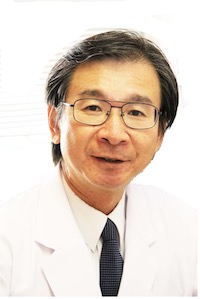 Kaoru Sakatani is a Project Professor at the Graduate School of Frontier Sciences, the University of Tokyo. He received the MD from Osaka Medical College in 1981, the Ph.D. in Medicine from the graduate school of Osaka Medical College in 1987, and the Ph.D. in Engineering from the graduate school of Hokkaido University in 1998. He is a project professor at the Graduate School of Frontier Sciences, the University of Tokyo. He is a clinician (neurosurgeon) and his research interests include digital health, biomedical engineering, optical engineering, and neuroscience. In 2010, he received the Medical Research Encouragement Prize of The Japan Medical Association for his lifelong developmental research on brain health using optical brain functional imaging. Currently, he is a vice president of Japan Optical Brain Functional Imaging, and executive members of Japanese Society of Integrative Medicine, and members of Japanese Society of Neurosurgery.
Kaoru Sakatani is a Project Professor at the Graduate School of Frontier Sciences, the University of Tokyo. He received the MD from Osaka Medical College in 1981, the Ph.D. in Medicine from the graduate school of Osaka Medical College in 1987, and the Ph.D. in Engineering from the graduate school of Hokkaido University in 1998. He is a project professor at the Graduate School of Frontier Sciences, the University of Tokyo. He is a clinician (neurosurgeon) and his research interests include digital health, biomedical engineering, optical engineering, and neuroscience. In 2010, he received the Medical Research Encouragement Prize of The Japan Medical Association for his lifelong developmental research on brain health using optical brain functional imaging. Currently, he is a vice president of Japan Optical Brain Functional Imaging, and executive members of Japanese Society of Integrative Medicine, and members of Japanese Society of Neurosurgery.  Phillip C. Yang is a Professor of Medicine (Cardiovascular Medicine) at the Stanford
University School of Medicine. He directs the Stanford Cardiovascular MRI Program and
Cardiovascular Stem Cell Laboratory (Yang Lab). Dr. Yang received degrees from Stanford
University and Yale University School of Medicine.
Phillip C. Yang is a Professor of Medicine (Cardiovascular Medicine) at the Stanford
University School of Medicine. He directs the Stanford Cardiovascular MRI Program and
Cardiovascular Stem Cell Laboratory (Yang Lab). Dr. Yang received degrees from Stanford
University and Yale University School of Medicine.Dr. Yang is a physician-scientist whose research focuses on innovation in cardiovascular imaging and regeneration. His laboratory combines novel imaging technology with stem cell biology to advance clinical implementation of induced pluripotent stem cells and their derivatives. Regenerative medicine will trigger a paradigm shift and his research provides a requisite validation for clinical translation. Dr. Yang is a Principal Investigator of the National Institute of Health (NIH) funded Cardiovascular Cell Therapy Research Network designed to conduct multi-center clinical trial on novel stem cell therapy. In addition, he leads multiple NIH, AHA, Intervalien Foundation, and Novartis research grants along with six clinical trials. He has received several prestigious awards, including the NIH Career Development Award, NIH Career Enhancement Award in Stem Cell Biology, NIH Mid-career Award, and multiple awards from both the American Heart Association and American College of Cardiology. He is a frequent guest speaker and session chair at national and international meetings.
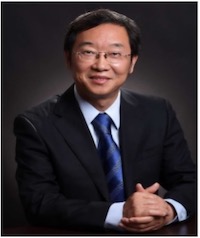 Tiangang Zhu is Professor of Peking University People's Hospital and devoted to promoting the development of digital health and Internet medicine in China. He served as Executive director of China Health Care International Exchange Promotion Association and Vice chairman of health big data and digital medicine branch of China Healthcare International Exchange Promotion Association. He is very concerned about the quality of life of cancer survivors and served as Standing committee member of integrated oncology and cardiology branch of China Anti-Cancer Association and member of oncocardiology branch, Cardiovascular Society of Chinese Medical Association. In view of his important contribution to the promotion of echocardiography in China, he is awarded honorary fellow by American Society of echocardiography in 2019. He also is a member on a review committee of National Natural Science Research Fund.
Tiangang Zhu is Professor of Peking University People's Hospital and devoted to promoting the development of digital health and Internet medicine in China. He served as Executive director of China Health Care International Exchange Promotion Association and Vice chairman of health big data and digital medicine branch of China Healthcare International Exchange Promotion Association. He is very concerned about the quality of life of cancer survivors and served as Standing committee member of integrated oncology and cardiology branch of China Anti-Cancer Association and member of oncocardiology branch, Cardiovascular Society of Chinese Medical Association. In view of his important contribution to the promotion of echocardiography in China, he is awarded honorary fellow by American Society of echocardiography in 2019. He also is a member on a review committee of National Natural Science Research Fund.ICDH Conference Steering Committee

Steering Committee Chair
Carl K. Chang is Professor of Computer Science, Professor of Human Computer Interaction and Director of Software Engineering Laboratory in the Department of Computer Science at Iowa State University where he served as its department chair from 2002-2013. He received a PhD in computer science from Northwestern University. He worked for GTE Automatic Electric and Bell Laboratories before joining the University of Illinois at Chicago in 1984, where he directed the International Center for Software Engineering. He served as Professor and Inaugural Director for the Institute for Mobile, Pervasive, and Agile Computing Technologies (IMPACT) at Auburn University from 2001–2002, before moving to Iowa State University in July 2002. Chang was the 2004 IEEE Computer Society president. Previously he served as the Editor-in-Chief for IEEE Software (1991–1994) and Editor-in-Chief for IEEE Computer (2007–2010). He launched and spearheaded the Computing Curricula 2001 (CC2001) project jointly sponsored by the IEEE Computer Society, the ACM, and the National Science Foundation. He is a Life Fellow of IEEE, a Fellow of AAAS, and a Life Academician and an officer of the European Academy of Sciences. He received the 2000 IEEE Third Millennium Medal, the 2006 Bulgaria Academy of Sciences Marin Drinov Medal, and the 2012 IEEE Computer Society Richard E. Merwin Medal. As a three times winner of IBM Faculty Award, Chang's research interests include software engineering, human computer interaction and digital health. He is the founder of Situation Analytics based on his Situ theoretical framework.
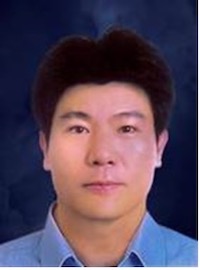 Cheng-Chung (William) Chu is a distinguished professor of the Department of Computer Science, and the Director of Software Engineering and Technologies Center of Tunghai University. He had served as the Dean of Research and Development office from 2004 to 2007, and the dean of Engineering College of Tunghai University from 2008 to 2011, He was a research scientist at the Software Technology Center of the Lockheed Missiles and Space Company, Inc., where he received special contribution awards in both 1992 and 1993 and a PIP award in 1993. In 1992, he was also a visiting scholar at Stanford University. He received ACM Recognition of Service Award in 2011, IEEE Computer Society Gold Core member Award and IEEE Computer Society Outstanding Contribution Award in 2010. He is now serving as associate editor for IEEE Transaction on reliability, International journal of Advancements in Computing Technology(IJACT), Journal of Information Technology and Applications(JITA), Journal of Software Engineering Studies(JSES). He had served as the associate editor for Journal of Software Maintenance and Evolution (JSME) and Journal of Systems and Software (JSS). His current research interests include Aim big data, cloud computing, gerontology and geriatrics health care. He has got several grants on the research topics on applying computing technologies to gerontology and geriatrics health care system from National Science Council. Dr Chu received his MS and PhD degrees from Northwestern University in Evanston Illinois, in 1987 and 1989, respectively, both in computer science. He has edited several books and published over 200 referred papers and book chapters, as well as participating in many international activities, including organizing international conferences.
Cheng-Chung (William) Chu is a distinguished professor of the Department of Computer Science, and the Director of Software Engineering and Technologies Center of Tunghai University. He had served as the Dean of Research and Development office from 2004 to 2007, and the dean of Engineering College of Tunghai University from 2008 to 2011, He was a research scientist at the Software Technology Center of the Lockheed Missiles and Space Company, Inc., where he received special contribution awards in both 1992 and 1993 and a PIP award in 1993. In 1992, he was also a visiting scholar at Stanford University. He received ACM Recognition of Service Award in 2011, IEEE Computer Society Gold Core member Award and IEEE Computer Society Outstanding Contribution Award in 2010. He is now serving as associate editor for IEEE Transaction on reliability, International journal of Advancements in Computing Technology(IJACT), Journal of Information Technology and Applications(JITA), Journal of Software Engineering Studies(JSES). He had served as the associate editor for Journal of Software Maintenance and Evolution (JSME) and Journal of Systems and Software (JSS). His current research interests include Aim big data, cloud computing, gerontology and geriatrics health care. He has got several grants on the research topics on applying computing technologies to gerontology and geriatrics health care system from National Science Council. Dr Chu received his MS and PhD degrees from Northwestern University in Evanston Illinois, in 1987 and 1989, respectively, both in computer science. He has edited several books and published over 200 referred papers and book chapters, as well as participating in many international activities, including organizing international conferences.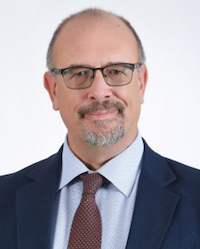 Ernesto Damiani is Full Professor at Università degli Studi di Milano, Senior Director of Robotics and Intelligent Systems Institute and Director of Center for Cyber Physical Systems (C2PS) within the Khalifa University, leader of the Big Data area at Etisalat British Telecom Innovation Center, and President of the Consortium of Italian Computer Science Universities (CINI). He is also part of the Scientific Committee of the H2020 project SMART BEAR, focused on evidence-based, personalised support for healthy and independent living of the elderly, and of the ENISA Ad-Hoc Working Group on Artificial Intelligence Cybersecurity, where he serves as Rapporteur.
Ernesto Damiani is Full Professor at Università degli Studi di Milano, Senior Director of Robotics and Intelligent Systems Institute and Director of Center for Cyber Physical Systems (C2PS) within the Khalifa University, leader of the Big Data area at Etisalat British Telecom Innovation Center, and President of the Consortium of Italian Computer Science Universities (CINI). He is also part of the Scientific Committee of the H2020 project SMART BEAR, focused on evidence-based, personalised support for healthy and independent living of the elderly, and of the ENISA Ad-Hoc Working Group on Artificial Intelligence Cybersecurity, where he serves as Rapporteur.According to DBLP (March 2021), Ernesto Damiani has authored 141 journal papers, 338 refereed articles in proceedings of international conferences, and published 57 books and chapters as an author or editor. According to Google Scholar, Ernesto’s work has been cited more than 18,400 times and his h-index is 57; 292 of his papers have at least 10 citations. On Scopus he has 621 documents and more than 7,150 total citations by more than 5,700 documents. His Scopus h-index is 36. With 548 publications listed on DBLP, he is considered among the most prolific European computer scientists.
His areas of interest include e-Health, Cyber-Physical Systems, Big Data Analytics, Artificial Intelligence, and Machine Learning. Ernesto Damiani has pioneered model-driven data analytics. Ernesto has been a recipient of the Stephen Yau Award from the Service Society, of the Outstanding contributions Award from IFIP TC2, of the Chester-Sall Award from IEEE IES, and of a doctorate honoris causa from INSA – Lyon (France) for his contribution to Big Data teaching and research.
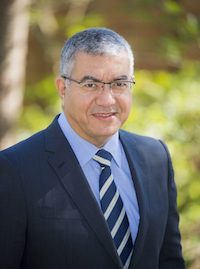 Sumi Helal is a Professor at the Computer and Information Science and Engineering Department at the University of Florida and the Director of its Mobile and Pervasive Computing Laboratory. From 2017 to 2020, while on leave from Florida, he was the Chair in Digital Health at Lancaster University, the United Kingdom. Dr. Helal served as the Editor-In-Chief (2015-2018) of IEEE Computer, the flagship publication of IEEE Computer Society. He has published extensively and founded four successful startups. He co-founded and directed the legendary Gator-Tech Smart House which is an experimental facility for applied research development and validation in the domains of elder care and health telematics. He served as the Technology Director of the NIDRR-funded Rehabilitation Engineering Research Center on Successful Aging (RERC-Aging), 2001-2007. He is best known for his work in Pervasive Computing, Mobile Computing and the Internet of Things, and their human-centric applications in the domains of aging, personal health and disability. Dr. Helal is a Fellow of IEEE, AAAS and IET, and a member of Academia Europaea.
Sumi Helal is a Professor at the Computer and Information Science and Engineering Department at the University of Florida and the Director of its Mobile and Pervasive Computing Laboratory. From 2017 to 2020, while on leave from Florida, he was the Chair in Digital Health at Lancaster University, the United Kingdom. Dr. Helal served as the Editor-In-Chief (2015-2018) of IEEE Computer, the flagship publication of IEEE Computer Society. He has published extensively and founded four successful startups. He co-founded and directed the legendary Gator-Tech Smart House which is an experimental facility for applied research development and validation in the domains of elder care and health telematics. He served as the Technology Director of the NIDRR-funded Rehabilitation Engineering Research Center on Successful Aging (RERC-Aging), 2001-2007. He is best known for his work in Pervasive Computing, Mobile Computing and the Internet of Things, and their human-centric applications in the domains of aging, personal health and disability. Dr. Helal is a Fellow of IEEE, AAAS and IET, and a member of Academia Europaea.

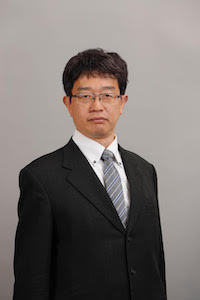 Hiroki Takakura is Professor of National Institute of Informatics (NII), Japan. He received a Ph.D in Engineering from Kyoto University in 1995. His research interests include cybersecurity, mainly focus on prevention and damage control against cyberattacks. As a director of NII Center for Cybersecurity Research and Development, he provides Security Operation Cooperation Services (NII-SOCS) to enhance the cyber resilience of national universities in Japan. He also assists Ministry of Health, Labour and Welfare (MHLW), Japan and provides various advices related to digital health. In addition, he joins Second-Department Subcommittee for a national program proposal to prevent and control large-scale infectious diseases, Science Council of Japan. He is a member of IEEE, ACM, Information Processing Society of Japan, and Institute of Electronics, Information and Communication Engineers.
Hiroki Takakura is Professor of National Institute of Informatics (NII), Japan. He received a Ph.D in Engineering from Kyoto University in 1995. His research interests include cybersecurity, mainly focus on prevention and damage control against cyberattacks. As a director of NII Center for Cybersecurity Research and Development, he provides Security Operation Cooperation Services (NII-SOCS) to enhance the cyber resilience of national universities in Japan. He also assists Ministry of Health, Labour and Welfare (MHLW), Japan and provides various advices related to digital health. In addition, he joins Second-Department Subcommittee for a national program proposal to prevent and control large-scale infectious diseases, Science Council of Japan. He is a member of IEEE, ACM, Information Processing Society of Japan, and Institute of Electronics, Information and Communication Engineers.
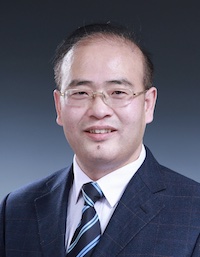 Ji-Jiang Yang is the director of Engineering Research Center on Digital Medicine and Health, and also the director of Research Center for Pharmacovigilance IT and Data Science(PVID),Tsinghua University, China.
Yang got his B.S. and M.S. degree from Automation Departments,Tsinghua university in 1990 and 1995, and Ph.D on Industrial Engineering from National University of Ireland(Galway) in 2004. Yang’s interested research areas involved in Business process collaboration, Information resource management, System integration and architecture,Medical Bigdata, Intelligent Assistant Diagnosis, Privacy Protection, etc. He has published more 150 papers on professional Journals and Conferences. He is the member of IEEE. He is also the member of the State Standard committee of Medical information, High-level Information Expert Advisory Committee of GuiZhou(Province) Health Commission.
Ji-Jiang Yang is the director of Engineering Research Center on Digital Medicine and Health, and also the director of Research Center for Pharmacovigilance IT and Data Science(PVID),Tsinghua University, China.
Yang got his B.S. and M.S. degree from Automation Departments,Tsinghua university in 1990 and 1995, and Ph.D on Industrial Engineering from National University of Ireland(Galway) in 2004. Yang’s interested research areas involved in Business process collaboration, Information resource management, System integration and architecture,Medical Bigdata, Intelligent Assistant Diagnosis, Privacy Protection, etc. He has published more 150 papers on professional Journals and Conferences. He is the member of IEEE. He is also the member of the State Standard committee of Medical information, High-level Information Expert Advisory Committee of GuiZhou(Province) Health Commission.
Posters & Demos Chair
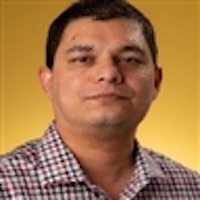 Hossain Shahriar is currently Associate Professor of Information Technology at Kennesaw State University, Georgia, USA. His research interests include mobile and web security, mhealth, EHR systems and healthcare security, HIPAA compliance checking, malware analysis, automatic checking of vulnerabilities and mitigation. He has published over 100 peer-reviewed articles in IEEE/ACM conferences, journals and book chapters. Some of his research projects have been supported by various agencies including National Science Foundation (USA) and NSERC (Canada). He has developed open education resources for Health Information Technology courses including Health Information Security & Privacy, Electronic Health Record System and Application, Clinical Workflow Analysis and Reverse Engineering at KSU, a project sponsored by University Systems of Georgia’s (USG), Affordable Learning Georgia program. Dr. Shahriar has served as Program Chair (SIN 2016), Publication Chair (ACM SAC 2017-current), Proceedings Chair in IEEE COMPSAC (2018- current). He is also a Symposium Chair on Smart and Connected Health (at IEEE COMPSAC) since 2019.
Hossain Shahriar is currently Associate Professor of Information Technology at Kennesaw State University, Georgia, USA. His research interests include mobile and web security, mhealth, EHR systems and healthcare security, HIPAA compliance checking, malware analysis, automatic checking of vulnerabilities and mitigation. He has published over 100 peer-reviewed articles in IEEE/ACM conferences, journals and book chapters. Some of his research projects have been supported by various agencies including National Science Foundation (USA) and NSERC (Canada). He has developed open education resources for Health Information Technology courses including Health Information Security & Privacy, Electronic Health Record System and Application, Clinical Workflow Analysis and Reverse Engineering at KSU, a project sponsored by University Systems of Georgia’s (USG), Affordable Learning Georgia program. Dr. Shahriar has served as Program Chair (SIN 2016), Publication Chair (ACM SAC 2017-current), Proceedings Chair in IEEE COMPSAC (2018- current). He is also a Symposium Chair on Smart and Connected Health (at IEEE COMPSAC) since 2019. Publicity Chair
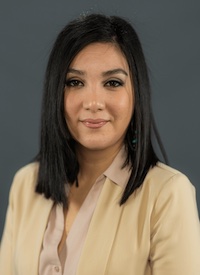 Maria Valero is an assistant professor in the College of Computing and Software Engineering, Department of Information Technology at Kennesaw State University (KSU). She received her Ph.D. in Electrical and Computer Engineering at the University of Georgia. She was an associate professor at the University of Táchira (Venezuela) from 2004 to 2015. She is leading the research group IoT as a Service at KSU. Her research interests include IoT for smart healthcare, distributed computing, signal processing, machine learning, and cyber-physical systems.
Maria Valero is an assistant professor in the College of Computing and Software Engineering, Department of Information Technology at Kennesaw State University (KSU). She received her Ph.D. in Electrical and Computer Engineering at the University of Georgia. She was an associate professor at the University of Táchira (Venezuela) from 2004 to 2015. She is leading the research group IoT as a Service at KSU. Her research interests include IoT for smart healthcare, distributed computing, signal processing, machine learning, and cyber-physical systems. Program Committee
Medhi Adda, UQAMSheikh Ahamed, Marquette University
Nabeel Al-Yateem, University of Sharjah
Mario bochicchio, University of Bari, CINI - Digital Health National Lab
Joe Bonner, NICHD
Matthew Burns, Ulster University
Alison Chernich, National Institute of Child and Human Development
Wan-Jung Cjhang, Southern Taiwant University of Science & Engineering
Carl Chang, Iowa State University
Congo Tak-Shing Ching, National Chung Hsing University
Salimur Choudhury, Lakehead University
Luigi Coppolino, University of Naples Parthenope
Antionio Coronato, CNR
Massimo Cossentino, CNR
Salvatore Distenfano, Universita' degli Studi di Messina
Mourad Elloumi, University of Bisha
Andrew Ennis, Ulster University
Agnostino Forestiero, ICAR-CNR
Zeno Franco, Medical College of Wisconsin
Salvatore Gaglio, University of Palermo
Md Osman Gani, University of Maryland, Baltimore County
Richard Greenwald, SIMBEX
Md Haque, James Madison University
Chueh Hua En, Taichung University
Shahrear Iqbal, National Research Council Canada
Anik Iqbal, Marquette University
Wanida Kanarkard, Khon Kaen University
Rasha Kashef, Ryerson University
Vanencia Koomson, Tufts University
Leanne Kosowan, University of Manitoba
Caterina La Porta, University of Milan
Ying-Hui Lai, National Yang Ming University
Kuo-Chih Liao, National Cheng Kung University
Chu-Wei Lin, National Cheng Kung University
Praveen Madiraju, Marquette University
Hamid McCheick, UQAM
Sam Moore, Ulster University
John Mylopoulos, University of Toronto
Daniel Neagu, University of Bradford
Chih-Wei Peng, Taipei Mdeical University
John Queenan, CPCSSN
Mohammad Rahman, Florida International University
Akshay Rajaram, Queens University
Oluwafemi Richard Oyleke, Stevens Institute of Technology
Kristina Rosinia, American Academy of Orthopedic Surgeons
Akkarit Sangpech, CMKL University
Hossain Shahriar, Kennesaw State University
Colin Shewell, Ulster University
Fong-Chin Su, National Cheng Kung University
Bhoom Suktitipat, Mahidol University
Wannarat Suntiamorntut, Prince of Songkla University
Prapat Suriyaphol, Mahidol University
Mahran Taghipour, University of Birjand
Mario Valero, University of Georgia/Kennesaw State University
Shinichi Warisawa, University of Tokyo
Ziqi Wei, Tsinghua University
Eric J. Wolf, US Army Medical Research & Development Command
Tishya Wren, Children's Hospital Los Angeles
Eric Yu, University of Toronto
Hasan Zafari, Queens University
Songmao Zhang, Chinese Academy of Sciences
Farhana Zulkernine, Queens University